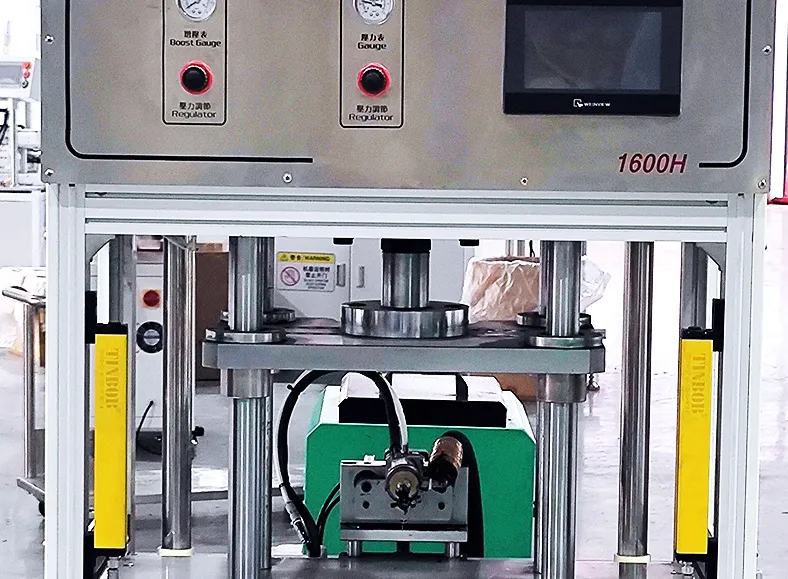In the world of mobile phone manufacturing, the plastic housing of mobile phone batteries plays a crucial role in ensuring both safety and durability. Low-pressure injection molding machines are commonly used to produce these plastic components. These machines operate by injecting molten plastic into a mold under lower pressure, which is ideal for creating small, thin-walled parts like mobile phone battery housings. But what exactly is the process, and what should be considered when using a low-pressure injection molding machine to collect battery housings?

What Is Low-Pressure Injection Molding?
Low-pressure injection molding (LPIM) is a method of producing plastic components where molten plastic is injected into a mold cavity at a pressure significantly lower than traditional injection molding. The low-pressure process reduces the risk of defects such as warping, flow marks, and other imperfections that may occur with higher-pressure injection systems. This makes LPIM ideal for producing lightweight, delicate, and intricate parts, such as the plastic enclosures of mobile phone batteries.
Key Considerations for Collecting Mobile Phone Battery Housings Using Low-Pressure Injection Molding
Material Selection
One of the most critical aspects when using low-pressure injection molding for mobile phone battery housings is choosing the right plastic material. Commonly used materials for this application include ABS (Acrylonitrile Butadiene Styrene), polycarbonate, and polypropylene. These materials are known for their impact resistance, heat resistance, and electrical insulation properties, making them suitable for battery housings. The material must also be compatible with the injection molding machine to ensure smooth production and minimize defects.Temperature Control
Precise temperature control is crucial in the low-pressure injection molding process. The plastic must be heated to the optimal temperature to ensure that it flows smoothly into the mold while maintaining the required mechanical properties once cooled. Overheating or underheating the material can lead to poor molding results, including incomplete or cracked battery housings. Therefore, constant monitoring of both the material temperature and mold temperature is essential for quality control.Mold Design and Accuracy
The design of the mold is another crucial factor. The mold must be designed to provide consistent and accurate cavity dimensions that match the specifications of the mobile phone battery housing. The precision of the mold ensures that each housing produced will fit the battery components securely, preventing potential safety issues. The mold must also allow for easy removal of the part once it has solidified to avoid any damage.Cycle Time Optimization
Although low-pressure injection molding typically involves slower cycle times compared to high-pressure systems, it is still essential to optimize cycle times to improve production efficiency. This involves balancing the time for injection, cooling, and ejection to ensure a high throughput without sacrificing part quality. Reducing cycle times helps to lower production costs while still meeting quality standards.Post-Processing and Inspection
After the molding process is complete, the plastic battery housings undergo post-processing steps such as trimming, surface finishing, and inspection. It’s essential to inspect each housing for defects, such as cracks, improper molding, or contamination. Any issues found during this stage should be addressed before the housings are sent for further battery assembly.Environmental Considerations
In today’s world, sustainability is an important consideration. Low-pressure injection molding machines, while energy-efficient, still require careful management of plastic waste and energy consumption. The use of recycled plastics or biodegradable materials for battery housings can contribute to reducing environmental impact. Additionally, maintaining efficient energy use in the molding process helps companies reduce both their carbon footprint and operational costs.
Advantages of Low-Pressure Injection Molding for Battery Housings
Precision and Accuracy: Low-pressure injection molding machines offer high levels of precision, essential for creating accurate mobile phone battery housings that ensure safety and functionality.
Reduced Risk of Defects: By using lower pressure during injection, the risk of common defects such as air bubbles or warping is minimized.
Cost-Effective for Small to Medium Production Runs: For manufacturers producing battery housings in moderate quantities, low-pressure injection molding provides a cost-effective solution compared to traditional methods.
Enhanced Durability: The process produces robust battery housings capable of withstanding impacts, vibrations, and temperature fluctuations, all of which are crucial for protecting mobile phone batteries.
Conclusion
Low-pressure injection molding plays a vital role in the production of high-quality mobile phone battery housings. The process offers precise control over material flow and mold design, leading to components that are both durable and reliable. However, to ensure the best results, manufacturers must pay close attention to factors like material selection, temperature control, and mold design. By optimizing these aspects, companies can produce superior battery housings that meet the safety standards and performance requirements of mobile phone applications.
With the continued growth in mobile phone production and the increasing need for more efficient battery housing solutions, low-pressure injection molding machines will remain a key technology in this vital manufacturing sector.



